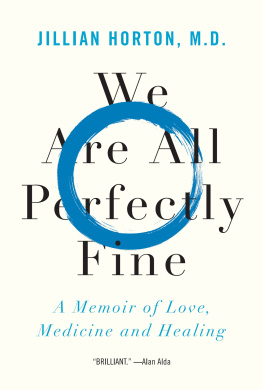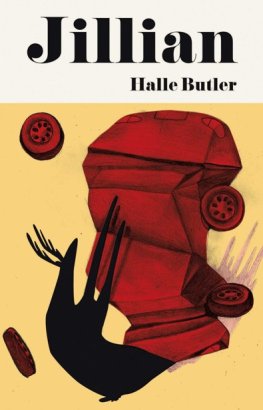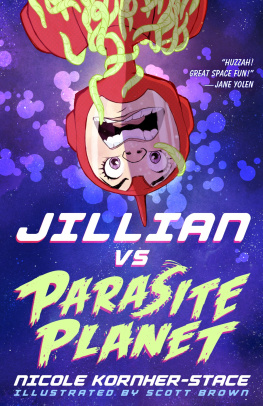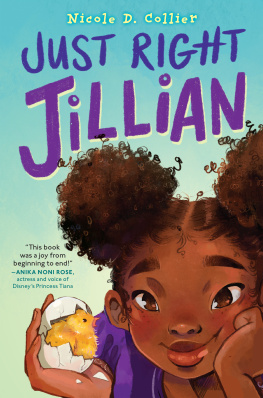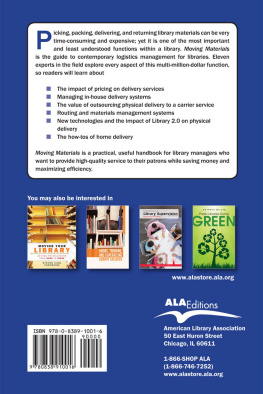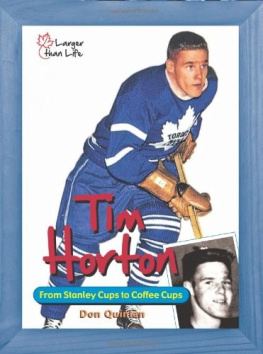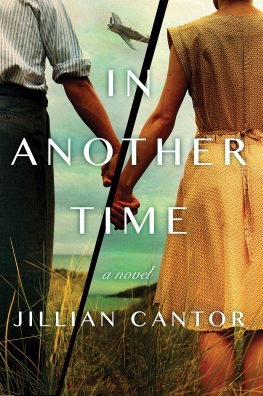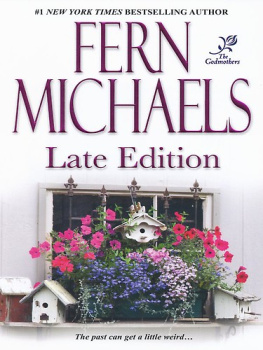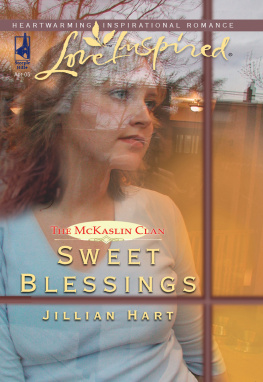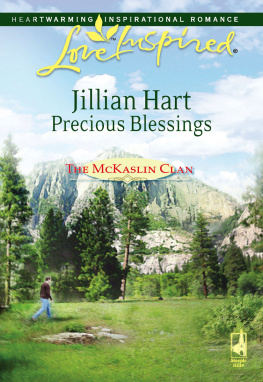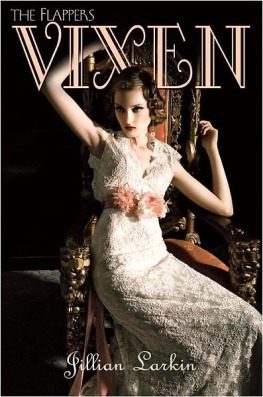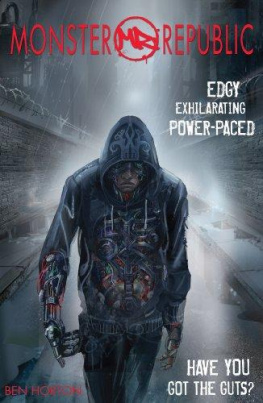Dr. Jillian Horton - We Are All Perfectly Fine
Here you can read online Dr. Jillian Horton - We Are All Perfectly Fine full text of the book (entire story) in english for free. Download pdf and epub, get meaning, cover and reviews about this ebook. year: 2021, publisher: HarperCollins Publishers, genre: Detective and thriller. Description of the work, (preface) as well as reviews are available. Best literature library LitArk.com created for fans of good reading and offers a wide selection of genres:
Romance novel
Science fiction
Adventure
Detective
Science
History
Home and family
Prose
Art
Politics
Computer
Non-fiction
Religion
Business
Children
Humor
Choose a favorite category and find really read worthwhile books. Enjoy immersion in the world of imagination, feel the emotions of the characters or learn something new for yourself, make an fascinating discovery.
- Book:We Are All Perfectly Fine
- Author:
- Publisher:HarperCollins Publishers
- Genre:
- Year:2021
- Rating:4 / 5
- Favourites:Add to favourites
- Your mark:
- 80
- 1
- 2
- 3
- 4
- 5
We Are All Perfectly Fine: summary, description and annotation
We offer to read an annotation, description, summary or preface (depends on what the author of the book "We Are All Perfectly Fine" wrote himself). If you haven't found the necessary information about the book — write in the comments, we will try to find it.
We Are All Perfectly Fine — read online for free the complete book (whole text) full work
Below is the text of the book, divided by pages. System saving the place of the last page read, allows you to conveniently read the book "We Are All Perfectly Fine" online for free, without having to search again every time where you left off. Put a bookmark, and you can go to the page where you finished reading at any time.
Font size:
Interval:
Bookmark:
For Wendy
My baby has not lived in vain. His life has been what it is to all of us, education and development.
S AMUEL T AYLOR C OLERIDGE, ON THE DEATH OF HIS SON B ERKELEY, IN A LETTER TO T HOMAS P OOLE, A PRIL 6, 1799
I know how Im going to die.
Its in a tin can of a plane at an altitude so low that birds will see the whites of my eyes as I go down screaming. Whichever nondescript great lake abuts Toronto and Rochesterokay, Lake Ontariothats the lake Im dying in, today, on this plane.
The whine of the motor is deafening. The low-pitch pulsing sounds like the apocalypse. Just after takeoff, I snapped a photo of an ominous dent on one of the wings, and Im wondering whether it will upload to the Cloud if Im in airplane mode when we crash. Then the Transportation Security Administration investigators will praise me: One passenger, in a final heroic act, had the presence of mind to leave behind the photographic evidence that unlocked this case for us.
But that was stupid. A better final act would have been to alert the pilot before takeoff, and then maybe it wouldnt have been a final act. And my final final act should have been to text my husband to tell him and the kids how much I love them. Or at least go into efficient doctor mode to remind him the youngest is due for a dentist appointment, and please follow up with the roofing company to patch the outrageously massive hole a squirrel chewed in the side of our chimney. Lest we get more squirrels.
By the way, I love you.
Im a general internist, the kind of doctor who looks after people with medical problems that sound made up. Typhlitis. Neurocysticercosis. Ankylosing spondylitis. I also treat people with less exotic problems but lots of them at once. Heart failure and liver disease and sick kidneys. Stroke and pneumonia and severe mental illness. I work in an inner-city hospital, a rambling facility in need of a paint job, built on unceded Treaty 1 land in a part of Canada that Truth and Reconciliation seems to have forgotten, a hundred miles from the town where I grew up. I look after people who are sick enough to be in the hospital. Some are dying. Many are homeless. Many are Indigenous and have been subjected to gross, almost unfathomable injustice, racial oppression and intergenerational trauma. They struggle to escape its legacy, which often comes in the form of drug and alcohol addiction.
Im heading to a place in New York called Chapin Mill. Nobodys sending me. Im going of my own volition, unsure as to why, doubtful it will make any difference. In the only-in-my-mind major motion picture version of my life, either Hawkeye Pierce or the soulful doctor played by George Clooney on ER have staged an intervention, since its so painfully obvious to viewers that Im floundering emotionally and need to go away somewhere for at least part of one season.
Interventions dont happen in medicine, in my experience. When they do, theyre a late-stage measure, akin to chemotherapy for advanced-cancer patients who have no hope of cure. Most doctors look fine, perennially, until the day they dont. Thats because doctors are excellent at compartmentalizing. We are also compliant and conscientious and rigidly perfectionistic, characteristics that put us at risk for choking to death on our own miseryor more specifically, overdosing on the perfect fatal combination of pills, throwing ourselves off just-tall-enough buildings, or slitting open the large arteries we studied so carefully when we were undergraduates, with the sleight of hand to bleed out quicklyif all goes well, in approximately five minutes.
I talk about death a lot; wouldnt you? Im surrounded by it. Ive signed more death certificates than cheques, and I pay for everything by cheque. Doctors have a delusional relationship with death. We trick ourselves into the professional assumption that death is reasonable. Not benevolent, but not unpredictablenothing psycho about it. Birth on a good day is a Hitchcock film; death is often quiet, understated, like dealing with your accountant. So when it shows up on our doorstep, whether for us or one of our family members, suddenly this reasonable death that seemed so calm and inevitable when it was happening to other people turns out to be a real handful, and were often woefully unprepared to deal with it.
But we also talk and think so much about death because medicine is so fucking hard.
I know many jobs are hard. Try being a soldier deployed in Afghanistan. Try being a police officer on the frontlines of the meth crisis. My friend Al is a pharmacist. Believe me, pharmacists have their problems too. All that working with doctors, some of them notorious jerks. All that worryingare you missing interactions between the red pill and the yellow, or the blue and the white? All those drugs, spread out in front of you like Dylans Candy Bar minus the carbs. One pill might take the edge off. Just the edge. What if it found its way into your pocket? What if you slipped it under your tongue? Just one. Whats the harm? Thats why they call it the edge, of course. Nothing begins in medias res. Every addiction, every dysfunctional behaviourall of it starts somewhere.
Al and his wife came with us to the beach this past summer. We watched the kids wade out a mile into the shallowest part of Lake Winnipeg, far enough that they were dots halfway to the horizon but the water was still only up to their knees. It was so hot that it made Al think of his first summer job. He worked at a grill, cooking meat. Behind the grill was hotter than any beach. Sometimes Al got assigned to onions. He would stand next to the sink, slicing them, working his way through an entire mesh bag. For the first ten minutes, tears would pour down his face, and his eyes would burn. Every minute was worse than the one before. Just when he thought he couldnt stand it anymore, even though he hadnt finished cutting, the burning stopped. His face was wet with tears, but he couldnt feel anything. He didnt even know hed been crying.
Al cutting those onions is like me and medicine. In the first few years, everything burned. Then one day the pain just stopped. That was a warning sign, and I missed it. Pain serves a purpose in our lives, sending messages to keep us out of danger. When we ignore those messages, or when our nerves have been damaged by prolonged toxic exposure and we no longer feel any pain, we mistake our insensibility for infallibility. And thats when we can end up in serious trouble.
I didnt know what I was in for when I decided to go to medical school. I knew there was risk; I didnt know the degree. Nobody would climb Mount Everest if they knew unequivocally that once they were at the top, their skin would freeze, and theyd be left with a hideous chunk of black flesh where their face used to be.
And yet, I love being a doctor. There is something so intimate, so fateful between me and medicine. Itzhak Perelman picks up the violin and knows it belongs in his hand. When I sit down at a bedside with a person in pain, theres a moment of deep resonance and grace: everything in my life has led me to that chair. But relationships have undertones, just like instruments. Perelman plays a concert, and its easy to forget he spent his life making what he does look effortless. And we have no idea what happened in rehearsals.
Why did I go to medical school? I went because of my sister, Wendy. She was the first of four siblings, twelve years older than the youngest (me), an age gap that would normally mean I might have been babysitting her kids before I was out of high school. But six years before I was born, Wendy was diagnosed with brain cancer. Surgeons cut her head open and took the tumour out. If it had been diagnosed earlier, or if that had been the end of it, she might have recovered and had a good life. Instead, just a few days after surgery, her skull still wrapped in Frankenstein bandages, she got post-operative meningitis, an infection of the thin, glistening tissues that encase the brain like a tough layer of Saran wrap. That infection caused swelling, and scarring, and left her with the most complex cluster of disabilities imaginable. It made her the worlds most cantankerous disabled person, but also one of its funniest. She was a martini of a human you could never mix again. But her disabilities were so profound that all the doctors advised my parents to stick her in an institution that by todays standards wouldnt even pass for an animal shelter. My mom remembers a doctor, famous in these parts when he was alive, drawing a pie graph on a chalkboard, with a single narrow line representing the one child out of a hundred who survived pediatric anaplastic astrocytoma, then thrusting Wendys scans up on a lightbox and screaming at my mom and dad, who had asked about her prognosis, Cant you people get it through your heads? The problem is
Font size:
Interval:
Bookmark:
Similar books «We Are All Perfectly Fine»
Look at similar books to We Are All Perfectly Fine. We have selected literature similar in name and meaning in the hope of providing readers with more options to find new, interesting, not yet read works.
Discussion, reviews of the book We Are All Perfectly Fine and just readers' own opinions. Leave your comments, write what you think about the work, its meaning or the main characters. Specify what exactly you liked and what you didn't like, and why you think so.

